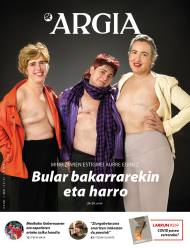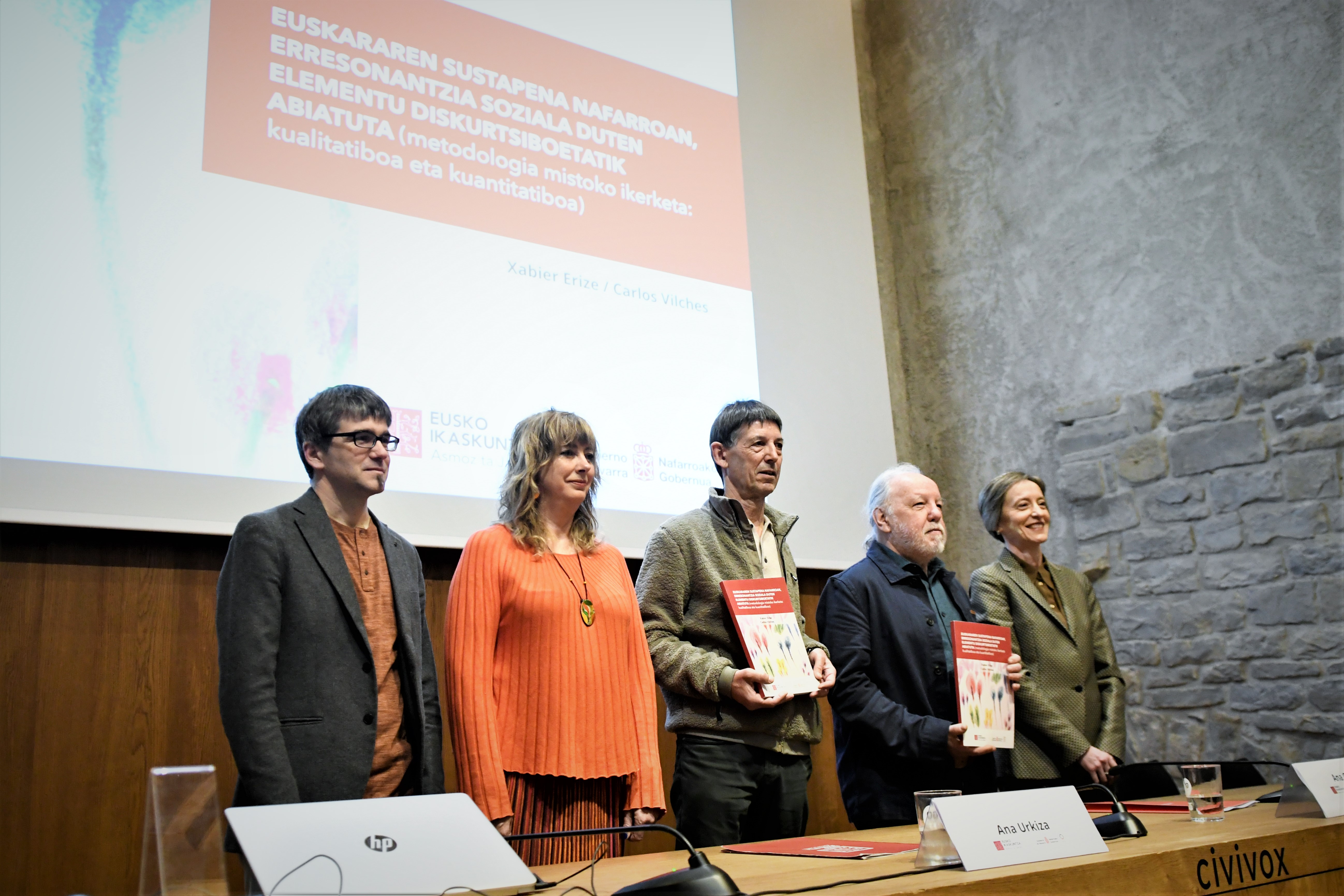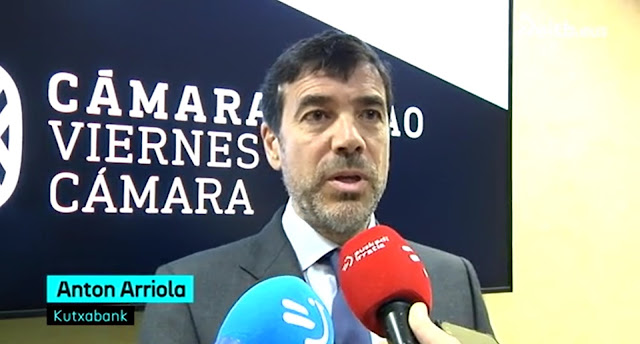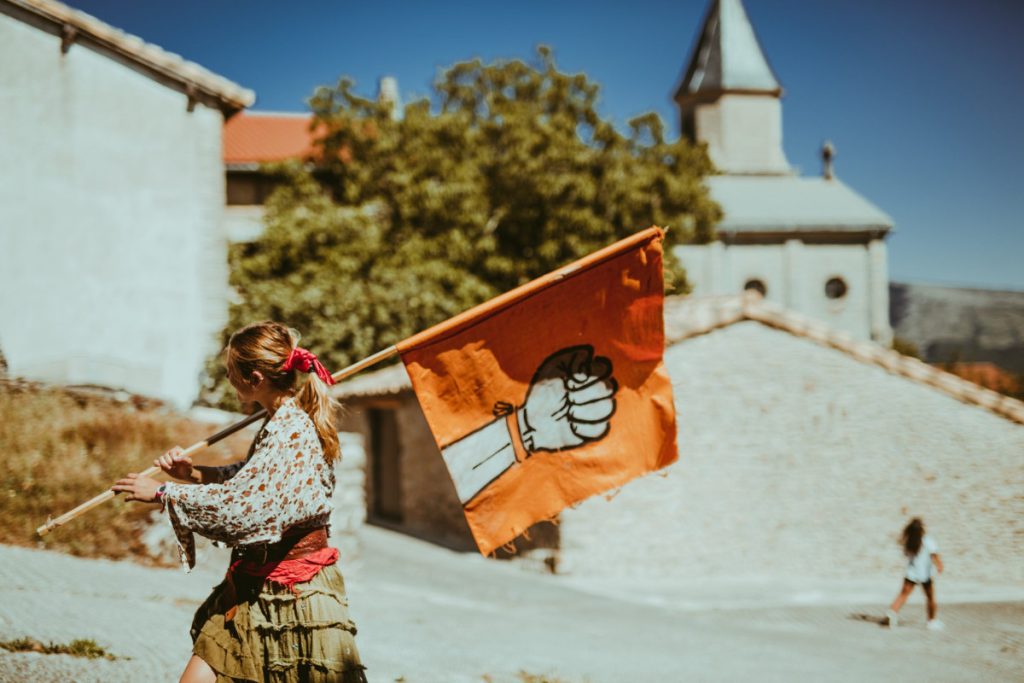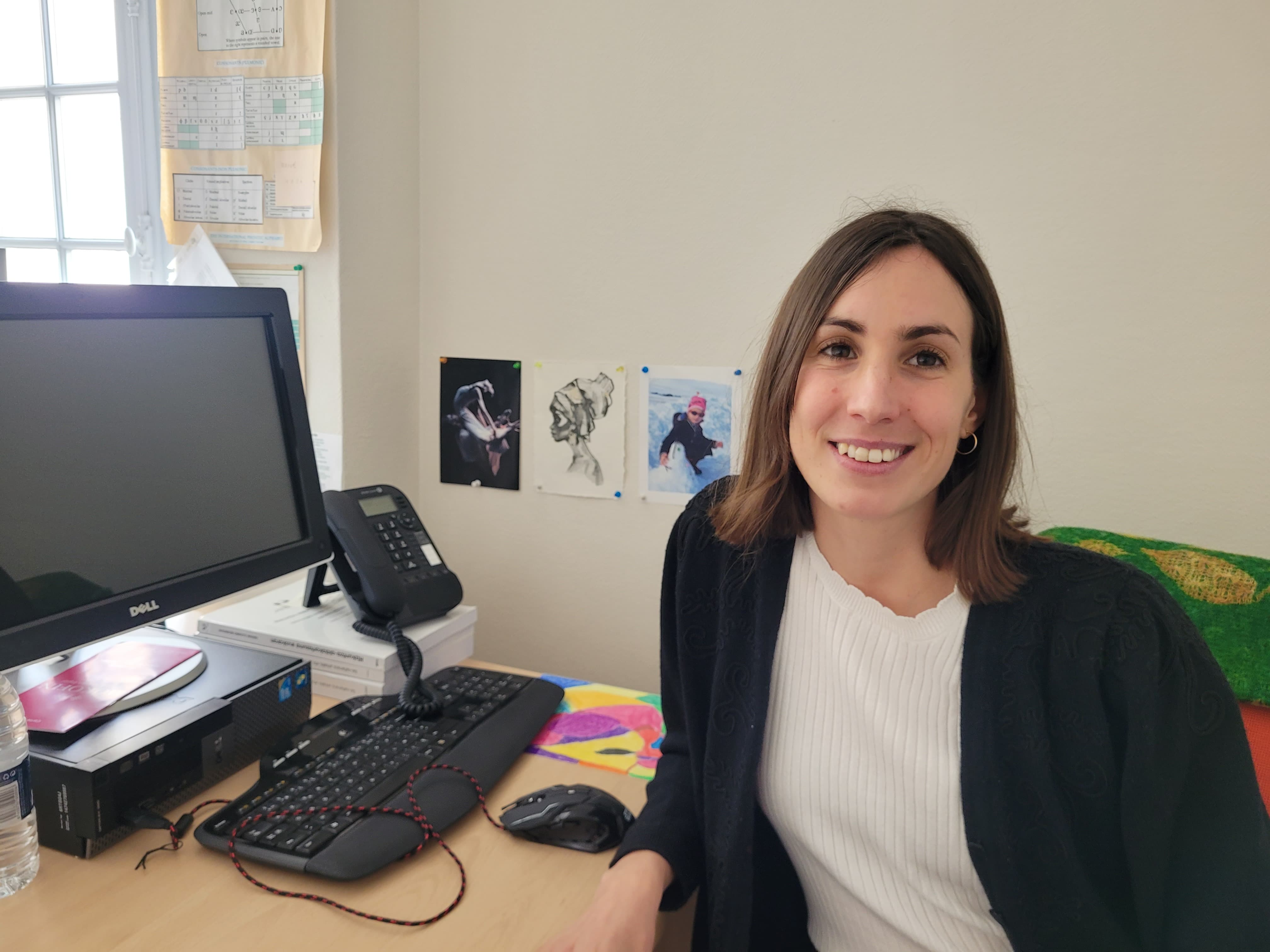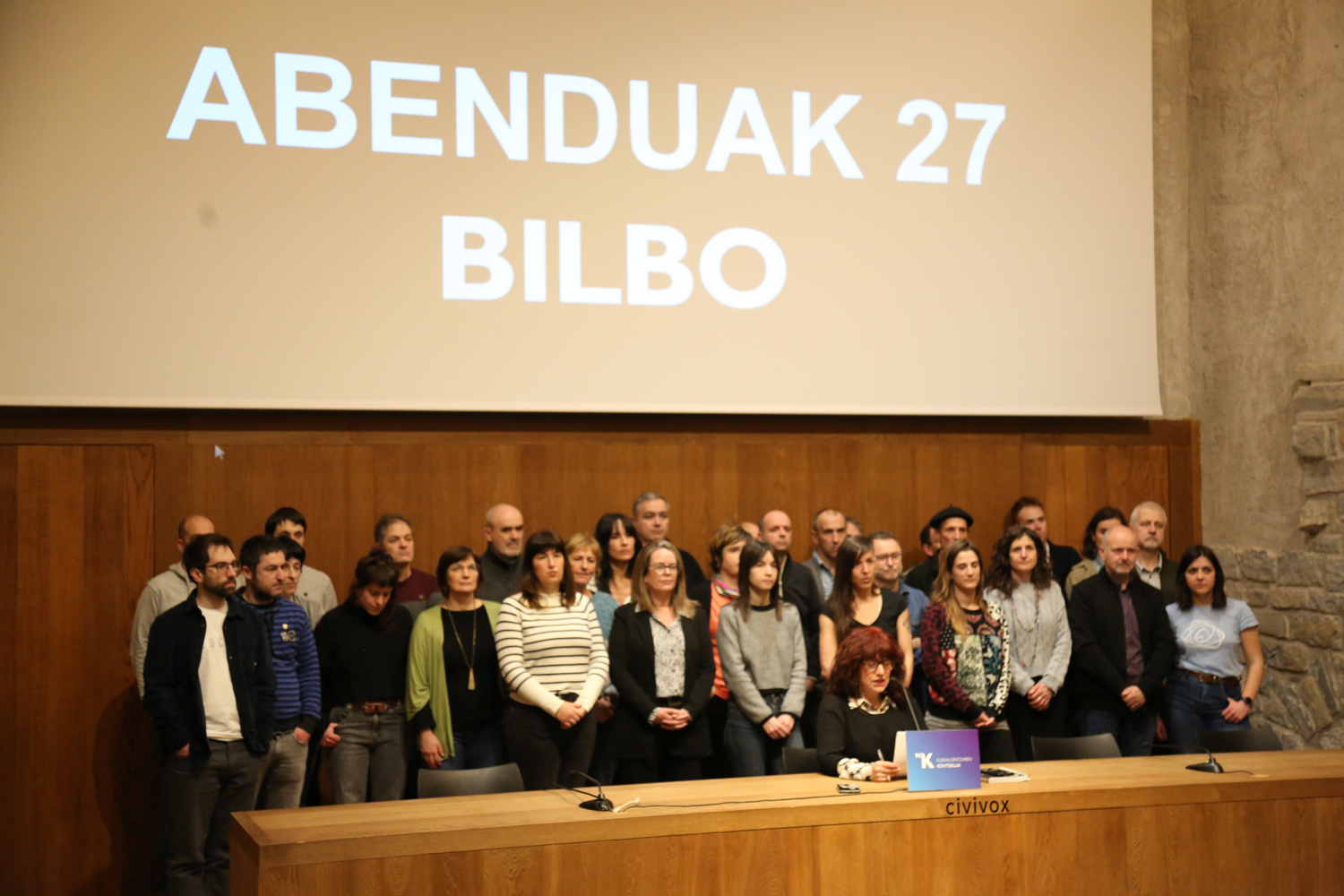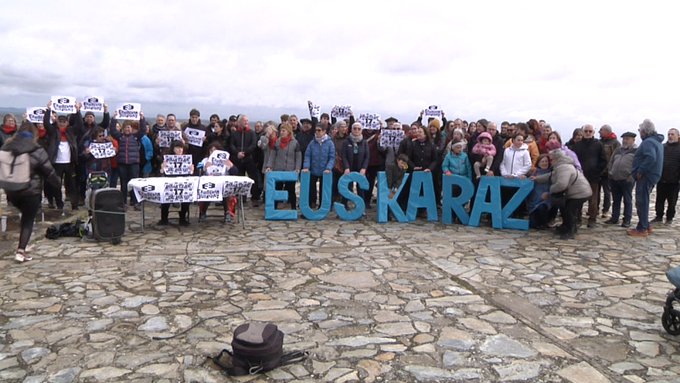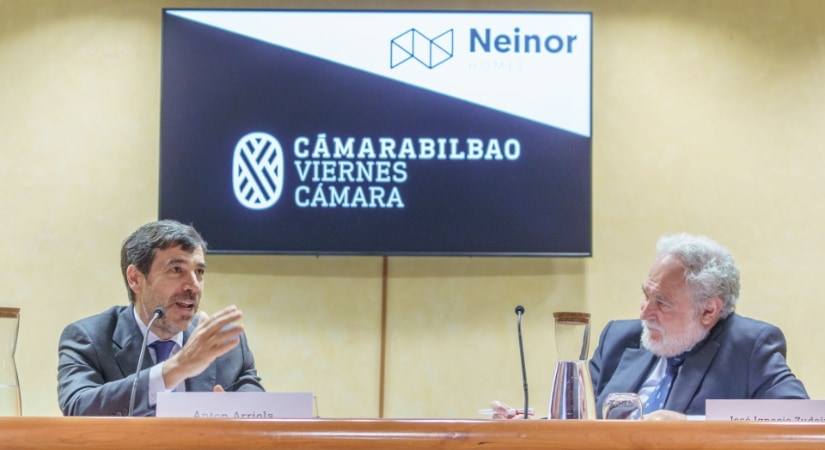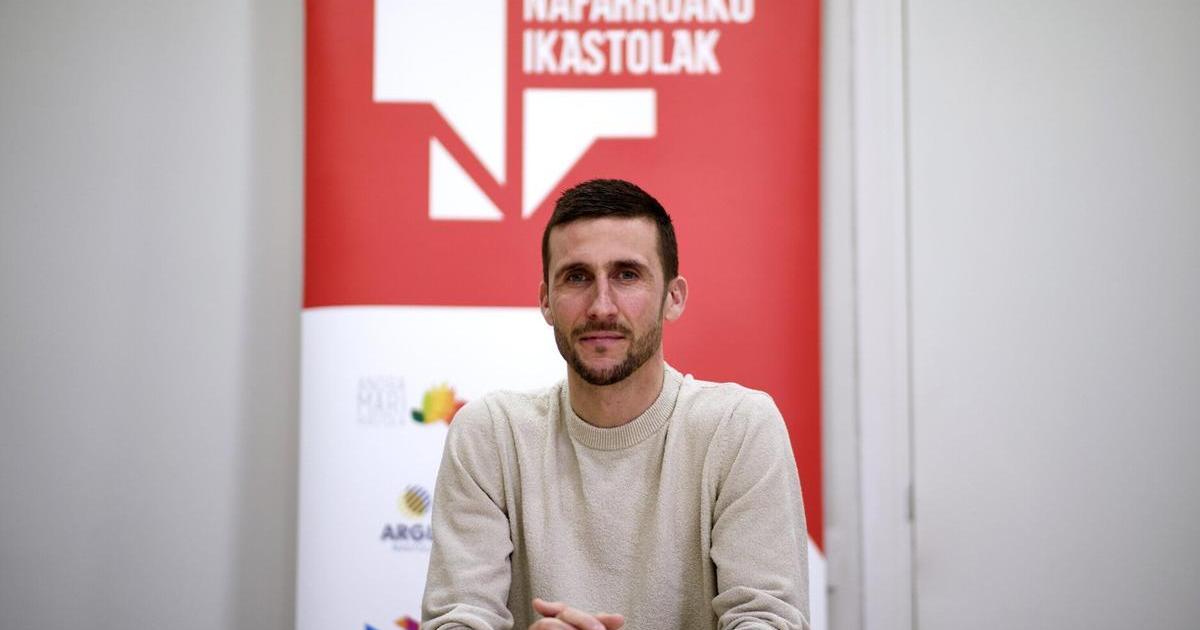“The references they receive from the Basque world are foreign to the youth from the periphery”
- And what is the transmission of Euskera and Basque culture in our country? What is the re-articulation of young people on the periphery? Moreover, what are the transmission and rearticulation without the geographic periphery of young people aged between 12 and 18 living on the periphery of the Basque Country?

Naroa Jauregizuria Lopategi started asking these questions in the final draft of the expert title on Transmission of Basque Culture by Mondragon Unibertsitatea. From there, upload the Volume of December 2 in Barakaldo! the day organized by Ahize-AEK. They also presented the teaching unit #Damolat. We have asked Naroa Jauregizuria himself.
He studied in the periphery the transmission and rearticulation of Euskera and Basque culture in the acquisition project of the expert title in Transmission of Basque Culture. Where did he leave?
It is a topical issue. Young people from towns and cities on the periphery of Basque culture develop their relationship with the world in Basque in the context of schools. At this level, transmission networks play an important role. In the case of children, as well as children from Castilian speaking environments, they strongly receive some content: Irrien Lagunak, EiTB cartoons, Ene Kantak, the Goazen series, Olentzero eta Mari Domingi and others. But, of course, these references lose meaning in adolescence and, on the other hand, the references they receive from the Basque world are foreign to them. It's more, sometimes invisible, sometimes uncomfortable.
Even invisible and uncomfortable?
Yes. However, most young people feel part of the Basque community and maintain their emotional bond with language and culture. That's where I started wanting. I placed the project in the current political, economic, cultural and social context in Greater Bilbao, where knowledge is increasing, but the use is not 10% in Leioa, and in the school environment. And, above all, I also wanted to offer concrete practices to effectively influence the transmission and rearticulation of Basque and Basque culture.
You started your research in Leioa, as you said earlier.
Yes, through the collaboration agreement between the Provincial Council of Bizkaia and Ahize-AEK, I made four interventions to contrast the theoretical approximation with reality: at the José Miguel de Barandiaran College of Leioa, at the Ikastola de always and at the Colegio Venezdarias. Then we jump to the Gran Bilbao, specifically to Getxo, Portugalete and Txurdinaga, and we are currently conducting the last sessions in Barakaldo. I would highlight the positive attitude of all of them, with a high interest of the faculty and an active participation of the students in all activities.
What is the relationship between young people and Basque culture, for example?
They know him little, but that's not just a matter of young people. According to the study conducted by Siadeco for the Elkar Foundation, half of the Basques do not consume culture in Euskera. It should be borne in mind that 26% of the Basque population is Euskaldun. The remaining 73% are totally alien to the Basque world. The young people have shown me that they know the literature and the Basque referents, that Basque music also has room in their day to day, but without records, they hear mainly songs, consume products from the Spanish world, but go to concerts of Basque groups. There are young people with a strong involvement with the Basque culture, who do so from the political conscience. On the other hand, Bertsolarism is also an important route to enter the Basque world and highlights the role of dance groups, which make children and young people feel part of the community. In general, young people carry out their relationship with the Basque and Basque culture in a festive and school environment.
What view do they have of Basque culture?
They have a theoretical vision, as you can say, at least. They relate Euskera with the knowledge of grammar, with the title of competence. The Basque is not functional, they can live peacefully without knowing Euskera. If they have any relationship, they have it in the affective sphere, as a treasure that must be received and cared for from previous generations. I say that for young people Euskera is like a father and a mother: very dear, but from a past time. And the school can't stand alone, it's not in a bubble. If society does not bring social value to the Basque Country and to the Basque culture – in the media, in the world of work, in sport, in institutions… – young people will not bring value, but will opt for Spanish, the language in which each and every social function can be developed. In Euskera, on the other hand, no.
"Young people with a high degree of adherence to Basque culture do so from a political conscience"
And so where do we go to these young people to transmit and rearticulate the Basque and current Basque culture?
While the diglosic situation of the Basque Country does not change, the educational centers are the most important spaces for the transmission and articulation of the Basque Country and the culture in the Castilian speaking spaces. VI of the Basque Government 2016. According to the Sociolinguistic Survey, more than half of Euskaldunes from 16 to 24 years old are new speakers, have received Euskera in school. This should be taken into account in the policy and strategy for linguistic standardisation. The challenge is to turn these new speakers into active speakers. In a few years’ time, they will start working, they will create a family, they will work in leisure time... Therefore, we must offer young people not only Basque, but also resources to live in Basque. That is why we believe that young people around the age of 18 should be affected.
Why precisely in young people of this age?
Because the Basque country will continue to make progress in terms of its capacity to be part of these young people. Or it becomes part of them or a piece of the museum. It is mandatory to work in the center with young people in this age group. It is at this age when identity is constructed, at this age cultural habits are also developed. Nowadays, Euskera loses meaning at that age. Argitxo as a child, Pirritx eta Porrotx edo Goazen, are not useful, lose value in adolescence. The references of childhood are worthless, the family also loses weight… Young people seek their own references: they will dress in a certain way, they will have a phone in a certain way…, they go to a specific cultural consumption.
Under the maximum influence of social networks.
Young people of this age group are related to new technologies since their birth. They identify increasingly early with the adult world, but without maturity in content management. Those born since 1995 are defined by the IAB as a social generation. According to this office, these young people simultaneously manage five or six social networks and dedicate 1 hour and 24 minutes. They mainly use Instagram, Snapchat, Tumblr, 21 Buttons, Twitch and Musically. 92% follow some influencer, especially on Instagram and Youtube. Of course, they have a mobile phone and they have the Internet every day. These are the young people today. There's not even physical distance, the world is available, because planes are always there, and in the supermarket, they have products from almost everyone to choose from. Young people are increasingly translocal in character.
A truly complicated context for Euskera and Basque culture to be part of the identity of young people…
Yes. On the other hand, Euskal Herria is immersed in an aging process that makes transmission even more difficult. It requires the adaptation of transmissions and articulations to new situations. There are other problems there. The country is dissolved: not having a State structure, no organization representing the nation, huge discrepancies in its name and nature, three administrative structures, 7 countries… This means that differentiated strategies must be implemented. In my work I have focused on the youth on the periphery, but on the other hand there is also the center and what the center can do to help the periphery.
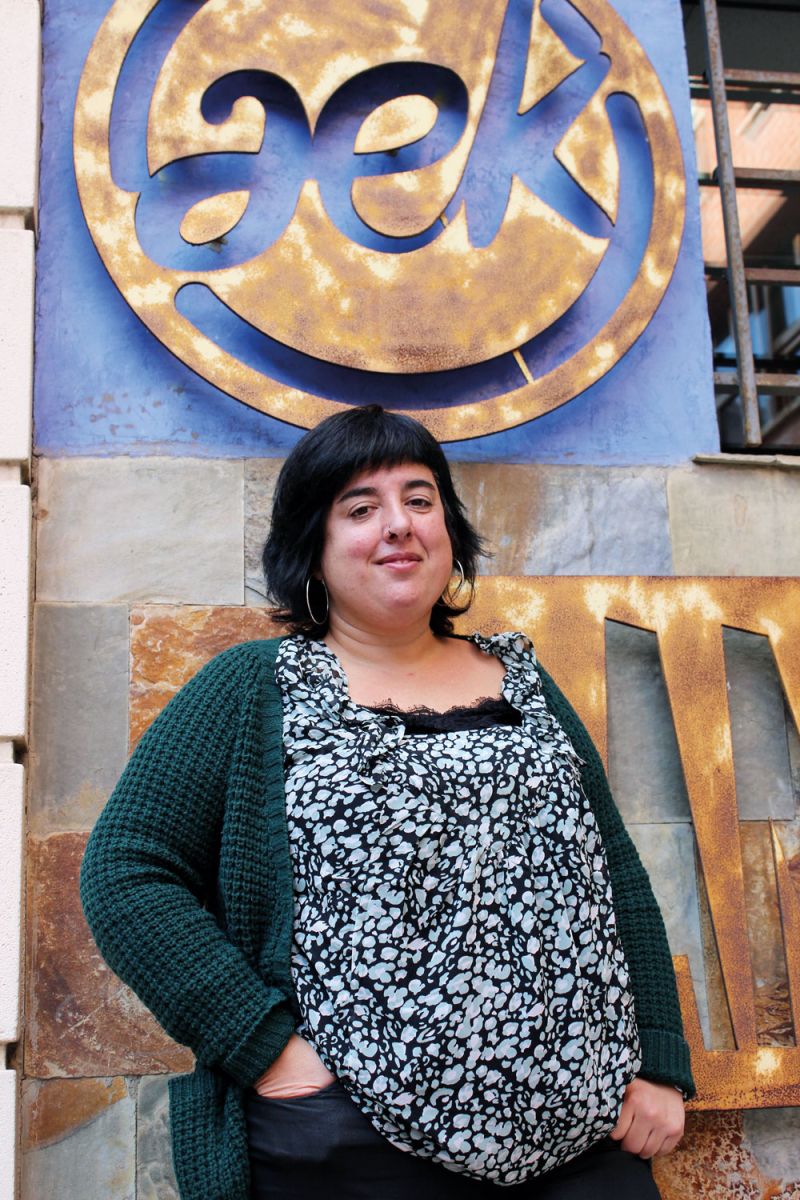
What is the center? Where is the centre of Euskera and Basque culture?
The highest concentration of Euskaldunes in Greater Bilbao does not correspond to the use of Euskera. The highest number of Euskaldunes and the highest number of Castellanoparlantes. Euskaldunes are 30%, Castellanoparlantes are 100%. There are many who know Euskera, but the possibilities and facilities for use are much smaller. Therefore, taking into account knowledge and use, the center is in Gipuzkoa. UEMA, the majority of creators, the greatest consumption, the reflection, the Martin Ugalde Park, Elkar… that is, Gipuzkoa.
Gipuzkoa center…
Yes, but fortunately not everything is concentrated in one place depending on space. From the Kalostrape or Zizpa de Baiona to the Faculty of Basque Philology of Vitoria-Gasteiz, through the Gaztetxe de Ortuella, the Kafe Antzokia of Bilbao, Bira, festival commissions, music groups, bertsolaris and ikastolas schools or the Gaztetxe center of Garazi, perform the functions. In this age of modernity, it is also an online realm: Euskadi Gaztea, Berria, ARGIA, the web Musika Zuzenean, the community of txiolaris… The actions also create centers: Masked, EH Zuzenean, Korrika, Durangoko Azoka, Baztango (H)ilbeltza, Bertsolaris Txapelketa…
There are those who perform the function of the respiratory center!
Yes, but the truth is that from the periphery they hear very low, and that the discourses and imaginaries created around the vital world in Euskera are not often adapted to current ways of life and thought. On the one hand, outside the Basque world, the Basque and the Basque world are associated with the caricaturized reference of the rural environment full of stereotypes. And on the other hand, the Basque industry often manages the same arguments and models it used 30 years ago, generating messages thinking about those who are convinced. These symbolic references are distant and, in part, unattractive to today’s young people born after the year 2000.
What are the main consequences of your work?
Young people on the periphery are far from the centre of Basque culture, so they do not know the creators and production well or sufficiently. They see stereotyped the references of Basque culture and are alien to them. As a result, they have serious difficulties in receiving and articulating the Basque culture in their lives and, at the same time, limitations in influencing the Basque culture. The youth from the periphery through the educational center, and to a large extent through the festivities, make the relationship with the Basque Country and the Basque culture, and it has been seen that model D does not guarantee the transmission and articulation we seek... A series of consequences.
So how do we influence these young people?
The problem is structural and is related to the weight and position of the Basque and the Basque culture in society, so if it does not change that position it is very difficult to reverse the situation and to make the Basque and the Basque culture something useful, useful and important for the Havenes.Nosotros we have tried to make two small contributions: on the one hand, we have organized a workshop to focus on the periphery and encourage reflection on
However, the centres have limited capacity.
Yes, but today for many young people they are one of the few threads of connection with the Basque world. Consolidating and complying with the contents of these strands is of vital importance, since, together with language teaching and the transmission of cultural creation, they can contribute to the construction of connections to other areas and centres. In this sense, in the learning unit, more than actions to promote Euskera, we have gathered initiatives and dynamics to know and live the world of Euskera, since it is very difficult – almost impossible – to be interested in the unknown, and more when the diglosis makes the world of Euskera less and topical.
From Gran Bilbao to Basque Country
"We have developed the project in Gran Bilbao, but I believe that the conclusions are extrapolated to cities and towns located on the periphery of the Basque country and the Basque culture. The young people who have participated in the project feel part of the Basque community, which are associated with the dwarf, the Basque, the folklore. But this doesn't match your day-to-day life. The main challenge is to overcome this gap, for which, first of all, we have developed a guide for instructions and proposals based on the diagnosis made. On the other hand, we have also drawn up a catalogue of good practice and on 2 December we presented the learning unit #Damolat, created in collaboration with the Ikastolas Confederation".
Gozamen aparta bezain deskribatzeko zaila dakar, norbaiten hitzak irakurri edo entzun ostean, zera pentsatzeak: “Horixe zen neu aurreko hartan azaltzen saiatu nintzena!”. Idazlea eta itzultzailea da María Reimóndez, eta galegoz aritzen da, hizkuntza... [+]
From linguistics or glotophobia and, of course, hatred against Basque, we have often seen our Basque become the dandruff of all sticks. Last of all, the president of Kutxabank, Anton Arriola, has been shaking our language and giving us galantas.The President of Kutxabank,
... [+]
Don't make a fuss, don't confront, don't victimize... and obey. As oppressed subjects, in this case as Basques, we talk, how many times have we had to listen to them? Ironically, two years ago, at the Euskalale Independentiston Meeting, Esne Arzallus said: "We have arrived here,... [+]
Euskal hizkuntzalaritza esperimentaleko katedra berria estreinatu dute Baionako fakultatean.
Bilbon eginiko aurkezpenean iragarri dute ekitaldia, euskarari "arnas berri bat emateko eta behar duen indarraldia gorpuzten hasteko" lehen urratsa izango dela nabarmenduta. Euskaltzale guztiei, baina, oro har, "justizia sozialean eta gizarte kohesioan aurre... [+]
Euskal Herrian Euskarazek manifestazioa deitu du apirilaren 6rako, 11n EHEko bi kide epaituko dituztelako. Hiriburuetatik autobusak antolatzen ari dira. Bi helburu bete nahi dituzte, batetik, epaituak izango diren bi kideei babesa erakustea, eta bestetik, euskararentzat justizia... [+]
Anton Txekhov, Raymond Carver eta Alice Munroren ipuingintzari buruzko mahai-ingurua egin dute Iker Sancho, Harkaitz Cano eta Isabel Etxeberria idazle eta itzultzaileek, Ignacio Aldecoa zenaren ipuin literarioaren jaialdian, Gasteizen. Beñat Sarasolak gidatuta, autore... [+]
Euskaraldiaren hamaikakoa aurkeztu dute Nafarroan: Julio Soto bertsolaria, Edurne Pena aktorea, Julen Goldarazena musikaria (Flakofonki), Claudia Rodriguez Goxuan Saltsan taldeko abeslaria, Eneko Garcia (Albina Stardust), Yasmine Khris Maansri itzultzaile eta kazetaria,... [+]
Azken hamarkadetan euskararen biziberritzeak duen erronka handienetakoa, euskararen ezagutzaren unibertsalizazioarekin batera, erabilerarena da. Askotan, gazteen euskararen erabileran jarri ohi dugu fokua, baita euskararen erabilerak izan duen eta izan dezakeen bilakaeraren... [+]
Prentsaurrekoan, maiatzaren 17an ospatuko duten Erriberako Euskararen Egunaren inguruko argibideak eman dituzte. Ume, gazte zein helduentzat zuzendua izango da. Ekimena, Erriberan egiten diren ekimenetan indarrak biltzeko eta euskararen normalizazioaren alde saretzeko... [+]
"Poloniar bat etortzen bada eta bost urte pasako baditu proiektu batean, joder agian ez zaio egoki irudituko seme-alabek euskaraz ikastea, ezta?", bankuko lehendakari Anton Arriolak adierazi duenez. Euskalgintzako eragileek gogor kritikatu dute eta esandakoa... [+]
Nafarroako Ikastolen Elkarteak lehendakari berria du. Oier Sanjurjok hartu dio lekukoa Elena Zabaleta Andresenari. Beste zazpi kide izanen ditu alboan Sanjurjok.









